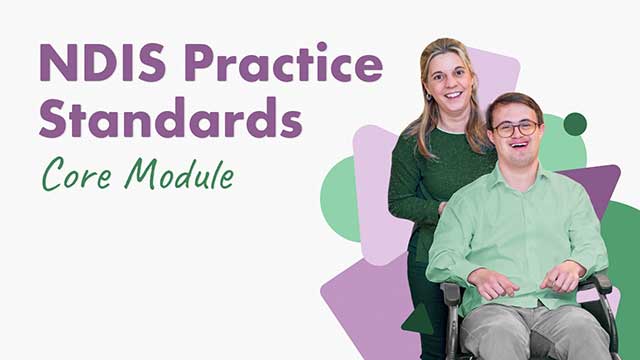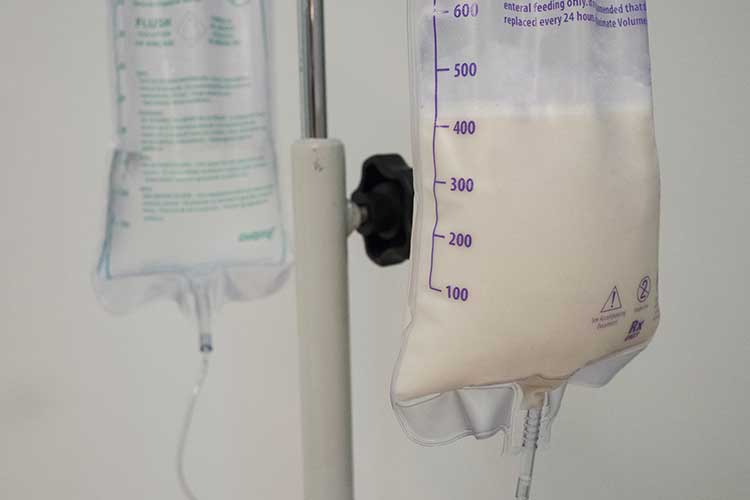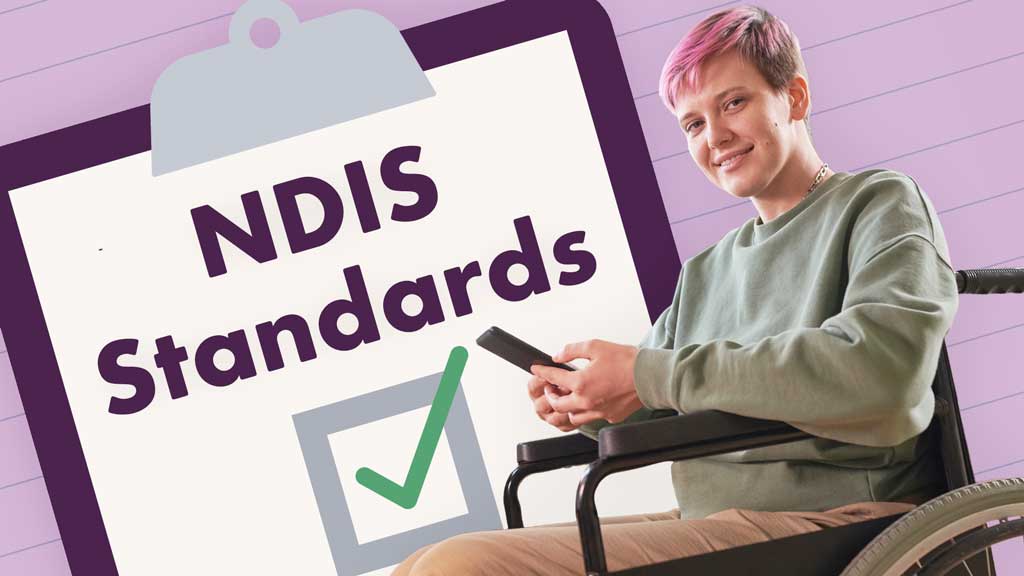The National Disability Insurance Scheme (NDIS), which is delivered by the National Disability Insurance Agency (NDIA), supplies funding to Australian people who live with permanent and significant disability. This funding can be used to receive supports and services from registered NDIS providers (NDIA 2022).
The NDIS Practice Standards work alongside the NDIS Code of Conduct to establish the benchmark of performance, quality and safety that NDIS providers should meet in their delivery of supports and services (NDIS Commission 2024a).
In other words, the NDIS Practice Standards help to inform NDIS participants (i.e. NDIS funding recipients) about the quality they should be expecting from the supports and services they receive (NDIS Commission 2024a).
The Basics
What?
The NDIS Practice Standards.
Who?
The NDIS Practice Standards are overseen by the NDIS Quality and Safeguards Commission, an independent body that was established in order to improve the quality and safety of NDIS supports and services (NDIS Commission 2024b).
Why?
The NDIS Practice Standards allow providers to assess their own performance and ensure that NDIS participants know the level of quality and safety they should expect (NDIS Commission 2024a).
How?
The NDIS Practice Standards provide a benchmark against which to measure the quality and safety of supports and services (NDIS Commission 2024a).
The NDIS Practice Standards
The NDIS Practice Standards are set out as follows:
- Core Module
- Rights and Responsibilities
- Provider Governance and Operational Management
- Provision of Supports
- Provision of Supports Environment
- Supplementary Modules
- High Intensity Daily Personal Activities Module
- Specialist Behaviour Support Module
- Implementing Behaviour Support Plans Module
- Early Childhood Supports Module
- Specialist Support Co-ordination Module
- Specialist Disability Accommodation Module
- Verification Module
(NDIS Commission 2021)
This article will provide a brief outline of each module, as well as links to Ausmed resources that explain each component in more detail.
Core Module

1. Rights and Responsibilities
The purpose of these standards is to set out the rights of participants and the responsibilities of providers. They include:
- Person-Centred Supports
- Individual Values and Beliefs
- Privacy and Dignity
- Independence and Informed Choice
- Violence, Abuse, Neglect, Exploitation and Discrimination.
(NDIS Commission 2021)
2. Provider Governance and Operational Management
The purpose of these standards is to set out the governance and operational management responsibilities for providers. They include:
- Governance and Operational Management
- Risk Management
- Quality Management
- Information Management
- Feedback and Complaints Management
- Incident Management
- Human Resource Management
- Continuity of Supports
- Emergency and Disaster Management.
(NDIS Commission 2021)
3. Provision of Supports
The purpose of these standards is to set out the responsibilities for providers when delivering supports. They include:
- Access to Supports
- Support Planning
- Service Agreements with Participants
- Responsive Support Provision
- Transitions to or From a Provider.
(NDIS Commission 2021)
4. Provision of Supports Environment
The purpose of these standards is to set out expectations of the environment in which supports are provided. They include:
- Safe Environment
- Participant Money and Property
- Management of Medication
- Mealtime Management
- Management of Waste.
(NDIS Commission 2021)
High Intensity Daily Personal Activities Module

The purpose of this module is to set out the responsibilities of providers when providing specific supports and services, which include:
- Complex Bowel Care
- Enteral (Naso-gastric Tube - Jejunum Or Duodenum) Feeding and Management
- Severe Dysphagia Management
- Tracheostomy Management
- Urinary Catheter Management (In-dwelling Urinary Catheter, In-out Catheter, Suprapubic Catheter)
- Ventilator Management
- Subcutaneous Injections
- Complex Wound Management.
(NDIS Commission 2021)
Specialist Behaviour Support Module

Read: Introduction to Positive Behaviour Support Under the NDIS
This module is for providers that are registered to provide specialist behaviour support.
The standards included in this module are:
- Behaviour Support in the NDIS
- Restrictive Practices
- Functional Behaviour Assessments and Behaviour Support Plans
- Supporting the Implementation of the Behaviour Support Plan
- Behaviour Support Plan Monitoring and Review
- Reportable Incidents involving the Use of a Restrictive Practice
- Interim Behaviour Support Plans.
(NDIS Commission 2021)
Implementing Behaviour Support Plans Module

Read:
This module is for providers that:
- Are registered to provide specialist behaviour support, and/or
- Use restrictive practices in the delivery of supports and services.
The standards included in this module are:
- Behaviour Support in the NDIS
- Regulated Restrictive Practices
- Supporting the Assessment and Development of Behaviour Support Plans
- Behaviour Support Plan Implementation
- Monitoring and Reporting the Use of Regulated Restrictive Practices
- Behaviour Support Plan Review
- Reportable Incidents involving the Use of a Restrictive Practice
- Interim Behaviour Support Plans.
(NDIS Commission 2021)
Early Childhood Supports Module

Read: Early Childhood NDIS Support
This module is for providers that are registered to provide early childhood supports.
The standards included in this module are:
- The Child
- The Family
- Inclusion
- Collaboration
- Capacity Building
- Evidence-Informed Practice
- Outcome Based Approach.
(NDIS Commission 2021)
Specialist Support Coordination Module

This module is for providers that are registered to provide specialist support coordination.
The standards included in this module are:
- Specialised Support Co-ordination
- Management of a Participant’s NDIS Supports
- Conflict of interest.
(NDIS Commission 2021)
Specialist Disability Accommodation Module

This module is for providers that are registered to provide specialist disability accommodation.
The standards included in this module are:
- Rights and Responsibilities
- Conflict of Interest
- Service Agreements with Participants
- Enrolment of SDA Properties
- Tenancy Management.
(NDIS Commission 2021)
Verification Module

This module is for providers that are delivering lower-risk or lower-complexity supports and services.
The standards included in this module are:
- Human Resource Management
- Incident Management
- Complaints Management.
(NDIS Commission 2021)
Conclusion
For more information, and to increase your understanding of the NDIS Practice Standards and your responsibilities, refer to the NDIS Quality and Safeguards Commission website, the NDIS website and the latest NDIS Practice Standards and Quality Indicators document.
Topics
References
- National Disability Insurance Agency 2022, The Role of the NDIS Quality and Safeguards Commission, Australian Government, viewed 23 September 2024, https://www.ndis.gov.au/providers/becoming-ndis-provider/how-register/role-ndis-quality-and-safeguards-commission
- NDIS Quality and Safeguards Commission 2021, NDIS Practice Standards and Quality Indicators, Australian Government, viewed 23 September 2024, https://www.ndiscommission.gov.au/sites/default/files/2022-02/ndis-practice-standards-and-quality-indicatorsfinal1_1.pdf
- NDIS Quality and Safeguards Commission 2024a, NDIS Practice Standards, Australian Government, viewed 23 September 2024, https://www.ndiscommission.gov.au/providers/registered-ndis-providers/provider-obligations-and-requirements/ndis-practice-standards
- NDIS Quality and Safeguards Commission 2024b, What We Do, Australian Government, viewed 23 September 2024, https://www.ndiscommission.gov.au/about/what-we-do
 New
New 
